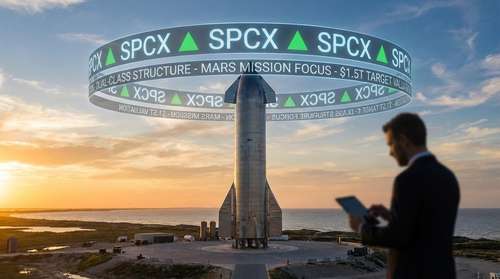Tech companies are increasingly entering the automotive industry.
While Apple recently discontinued its ambitious car project, Xiaomi is moving forward with its own plans.
After nearly a decade of developing the Apple Car, known as Project Titan, Apple has shifted its focus from creating an electric vehicle (EV) to concentrating on software and services.
This change has led to the reassignment of over 600 employees, as Apple now prioritizes enhancing its CarPlay and Apple Maps systems rather than building a car from the ground up.
The decision was unexpected, given the substantial investment in the project, which reportedly cost over $1 billion annually.
Xiaomi's Entry into the Automotive Sector
In contrast, Xiaomi is fully commited to its automotive goals.
The company launched its first electric vehicle, the SU7, earlier this year and is already developing its next model, the SU7 Ultra Prototype.

Xiaomi SU7 | YT
This prototype features a tri-motor setup that delivers 1,330 kW of power, enabling acceleration from 0 to 100 km/h in just 1.97 seconds.
Xiaomi's founder, Lei Jun, has set an ambitious goal for the company: to become one of the top five car manufacturers worldwide.
https://youtu.be/JPfqNL-kXIk
Meizu's Automotive Ambitions
Meizu is also entering the automotive market. The company's COO recently announced plans to unveil its first car later this year, focusing on technology integration.
The upcoming model will feature Flyme Auto, a system designed to sync seamlessly with users' smartphones, offering a customized driving experience.
Meizu is also involving the community in the car's development, inviting potential customers to suggest design and feature ideas.
Competitive Landscape
Xiaomi's automotive strategy is strengthened by its partnership with Geely, a major player in the automotive industry.
This collaboration provides Xiaomi access to advanced technology and manufacturing capabilities, positioning it well in a competitive market.
Meanwhile, Huawei is also making progress in the automotive sector, collaborating with various domestic carmakers.
Future of Automotive Technology
As traditional automakers and tech companies converge, the automotive industry is rapidly evolving.
While Apple's withdrawal from the car market leaves a gap, Xiaomi and Meizu are stepping in with innovative offerings.
Xiaomi's SU7 has already attracted significant pre-orders and plans for international expansion.
The vehicle's integration with Xiaomi's ecosystem offers a connected experience that could rival what Apple envisioned for its own car.
In summary, while Apple has stepped back from the automotive race, companies like Xiaomi and Meizu are advancing, demonstrating their commitment to transforming the automotive industry.
Their focus on technology and community engagement positions them to make significant contributions to the field.
Comparing the Xiaomi SU7 and SU7 Ultra Prototype
The Xiaomi SU7 and the upcoming SU7 Ultra Prototype have notable diffrences in performance, design, and technology.
Performance
- Power Output: The SU7 Ultra Prototype has 1,548 horsepower from its tri-motor setup, significantly more than the standard SU7.
- Acceleration: The Ultra accelerates from 0 to 100 km/h in just 1.97 seconds, while the standard SU7 has a slower acceleration time, focusing more on everyday usability.
- Top Speed: The Ultra is designed for high speed, with a top speed exceeding 350 km/h, compared to the standard SU7, which is not aimed at extreme performance.
Design
- Weight and Materials: The Ultra Prototype uses extensive carbon fiber, reducing its weight to about 1,900 kg. The standard SU7 weighs around 1,980 kg, using heavier materials.
- Aerodynamics: The Ultra has a complete aerodynamic redesign, including a large rear wing and improved body shape for better stability at high speeds. The standard SU7 has a more conventional design.
Technology
- Battery and Motor Technology: The Ultra is equipped with Xiaomi's advanced V8s motors and a high-capacity CATL Kirin II battery, supporting rapid charging and high power output. The standard SU7 uses less advanced battery technology.
- Braking System: The Ultra Prototype features high-performance AP Racing brakes for rapid deceleration from high speeds. The standard SU7 has a conventional braking system for everyday driving.




